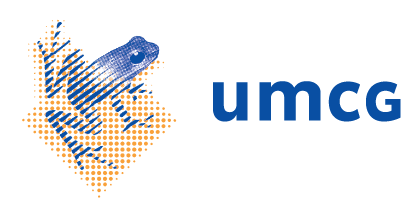Head and Neck
Larynx | Nasopharynx | Oral cavity | Oropharynx | Paranasal Sinus | Skin tumors within this region
Our team of six radiation oncologists uses cutting-edge technology such as intensity modulated radiotherapy and proton therapy to treat a wide variety of tumors in the head-and-neck region. We treat more than three hundred patients with head-and-neck cancer each year.
Our multi-disciplinary approach
The University Medical Center Groningen is one of eight official centers for the (radiotherapy) treatment of patients with head-and-neck tumors. We are therefore the go-to center for all patients within the provinces of Groningen and Drenthe.
In addition to surgery, radiation therapy is an important and effective treatment for tumors in the head-and-neck region. The treatment of tumors in this region is a complex matter as they are located close to important (healthy) organs. Radiation treatment affects the organs surrounding the tumor, leading to side-effects such as a dry mouth or the loss of taste.
We discuss all new patients in our weekly multi-disciplinairy team meeting. Previously treated patients are discussed if there are special circumstances. These meetings are attended by specialists from the departments of otolaryngology, oral surgery, radiology, medical oncology, radiation oncology, nuclear medicine and pathology. The specialized tumor board determines the best treatment approach as well as additional actions to take prior to the start of treatment. Our cross-specialty approach enables us to provide comprehensive care tailored to your needs.
For an optimal treatment, patients with a tumor in the head-and-neck region will be immobilized with a custom-made mask. This mask is also used when acquiring a CT-scan and, if needed, during acquisition of an MRI and PET-CT scan. These images allow the radiation-oncologist to exactly determine the location and shape of the tumor and to calculate the predicted dose distribution.
We apply the most advanced photon radiotherapy techniques such as intensity-modulated radiotherapy (IMRT), volumetric multiple arc therapy (VMAT) and stereotactic radiotherapy. We are also the first department in the Netherlands to offer proton therapy.
You can find more information about our treatment techniques here.
Proton therapy
As of January 2018 we offer proton therapy for selected indications. For nearly all head-and-neck cancer patients referred to our department we perform a planning comparison study between the most advanced photon and proton therapy treatment plans. Both treatment plans are translated into a probability of developing radiation-induced side-effects. Based on these results, and on national indication protocols, we determine the radiotherapy technique most suitable for your treatment. For two out of every three patients there will be little or no benefit when applying proton therapy.
Standard follow-up program
We invite all our patients to participate in our follow-up program. This involves the completion of questionnaires prior to, during and after receiving your radiotherapy treatment. By means of these questionnaires we track your quality of life, as well as side-effects caused by the tumor and by the treatment. We use these data to improve the quality of radiotherapy treatments. We consider our follow-up program to be standard clinical care. If you do not wish to complete these questionnaires, please notify your attending physician.

M. Atasoyu, MD
Specialization:
Head-and-neck tumors
J.G.M. van den Hoek, MD
Specialization:
Head-and-neck tumors
Urological tumors
E. Oldehinkel, MD
Specialization:
Head-and-neck tumors
H.H.G. Verbeek, MD
Specialization:
Head-and-neck tumors
Hematological tumors

T. van Zon-Meijer, MD
Specialization:
Head-and-neck tumors
Physician Assistants

G. Havik
Physician Assistant in training
Specialization:
Head-and-neck-tumors
The Head-and-neck Program participates in the following clinical trials and studies:
ARTFORCE study (Inclusion of patients is closed)
In a collaboration with the Netherlands Cancer Institute – Antoni van Leeuwenhoek Hospital we investigate whether an increased radiation dose increases the effectiveness of radiation treatment for patients with locally advanced head-and-neck cancers.
HANS study
This study investigates if the severity of early and late complications can be predicted.

 English
English
 Nederlands
Nederlands